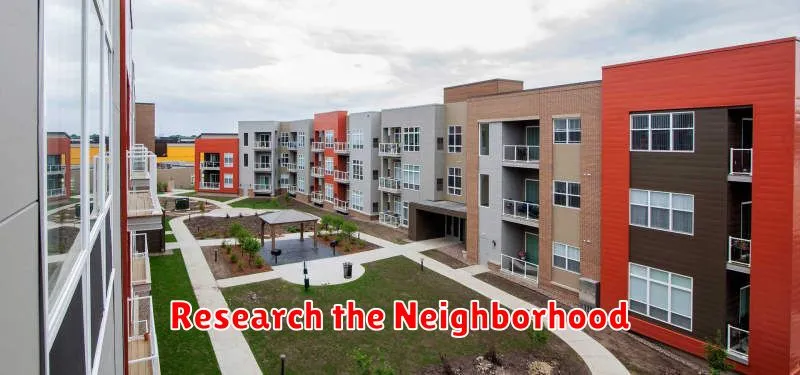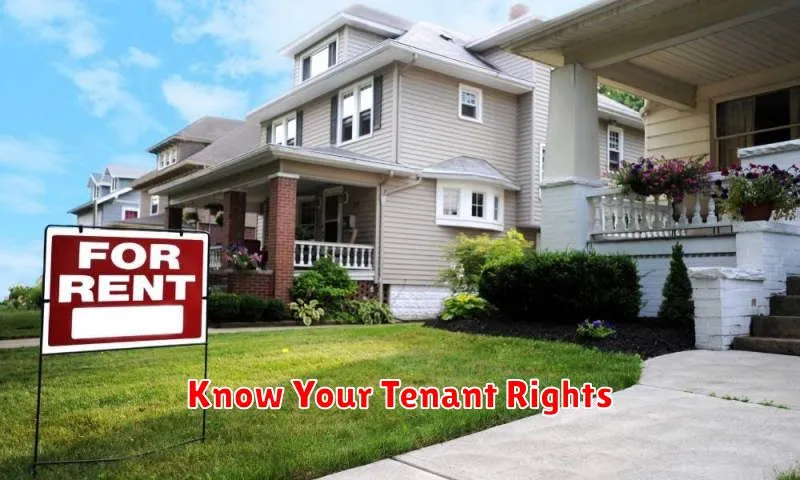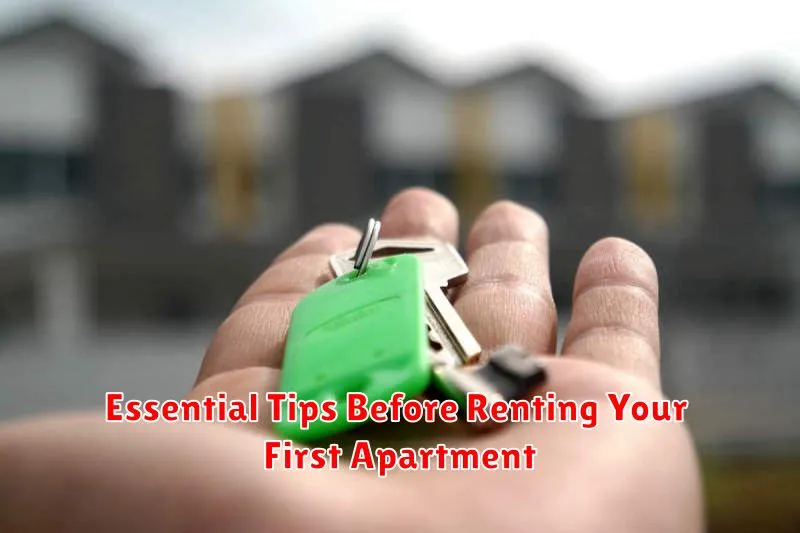Renting your first apartment is a significant milestone, marking a transition towards independence and self-reliance. It’s an exciting chapter, filled with the promise of creating your own personal space. However, navigating the rental market can be daunting for first-time renters. From understanding lease agreements to budgeting for moving expenses, there are numerous factors to consider. This article provides essential tips for first-time renters, equipping you with the knowledge and resources necessary to make informed decisions and embark on this exciting journey with confidence. We’ll cover everything from finding the right apartment to understanding your rights as a tenant, ensuring a smooth and successful renting experience.
Before signing your first lease, it’s crucial to be well-prepared. This guide offers valuable insights into the apartment hunting process, including defining your needs, setting a realistic budget, and securing necessary documentation. We’ll explore the importance of thorough research, highlighting key factors like location, amenities, and lease terms. Understanding these essential tips will empower you to confidently navigate the rental market, avoid common pitfalls, and secure the perfect apartment that meets your needs and budget. We’ll also discuss crucial aspects like renter’s insurance and building a positive relationship with your landlord, setting the foundation for a positive and successful tenancy.
Understand Your Rental Needs
Before you start your apartment hunt, take time to clearly define your needs. This will save you time and frustration in the long run. Consider these crucial factors:
Location
Think about proximity to work or school, access to public transportation, and the overall neighborhood environment.
Budget
Establish a realistic budget that includes rent, utilities, and other living expenses. Determine how much you can comfortably afford each month.
Amenities
Identify must-have amenities such as parking, laundry facilities, or pet-friendly policies.
Size and Layout
Determine the appropriate apartment size and layout based on your lifestyle and needs. Consider the number of bedrooms and bathrooms you require.
Set a Realistic Budget
One of the most critical steps before renting your first apartment is establishing a realistic budget. Determine how much rent you can comfortably afford without straining your finances. A common rule of thumb is the 30% rule, suggesting that your rent should not exceed 30% of your gross monthly income.
However, consider your individual circumstances and expenses. Factor in utilities, groceries, transportation, and other recurring costs. Create a detailed monthly budget to accurately assess your spending and determine a sustainable rent range.
Don’t forget to account for upfront costs like security deposits and application fees. Being honest with yourself about your financial limitations will help you find an apartment that aligns with your budget and prevents future financial stress.
Research the Neighborhood

Before committing to an apartment, thoroughly research the neighborhood. Safety should be a top priority. Check crime statistics and talk to current residents if possible.
Consider your commute to work or school. Factor in traffic and public transportation options. Proximity to essential amenities like grocery stores, pharmacies, and banks is also crucial.
Think about your lifestyle. Do you prefer a quiet residential area or a bustling neighborhood with nightlife? Research local parks, restaurants, and entertainment venues to ensure the area aligns with your preferences.
Inspect the Apartment Carefully
Before signing a lease, a thorough inspection of the prospective apartment is crucial. This helps avoid future issues and ensures the space meets your needs.
Key areas to inspect:
- Plumbing: Check for leaks, water pressure, and proper drainage.
- Electrical Systems: Test outlets and light switches. Inquire about the electrical panel’s capacity.
- Appliances: Ensure all included appliances are functioning correctly.
- Heating and Cooling: Test these systems to verify proper operation.
- Safety Features: Check smoke detectors, carbon monoxide detectors, and window/door locks.
Document any existing damage and discuss necessary repairs with the landlord before moving in. This protects you from being held responsible for pre-existing issues.
Understand the Lease Agreement
Before signing anything, thoroughly read and understand your lease agreement. This legally binding document outlines the terms of your tenancy, including your rights and responsibilities.
Key aspects to pay attention to include the lease duration, rent amount and due date, late payment penalties, and any included utilities. Also, be clear on the terms regarding guests, pets, and property alterations.
Don’t hesitate to ask questions if anything is unclear. It’s better to clarify upfront than face unexpected issues later. Having a complete understanding of your lease agreement will help ensure a smooth and positive renting experience.
Know Your Tenant Rights

Before signing any lease, understand your rights as a tenant. These rights vary by location, so research your specific state or city’s tenant laws.
Key areas to familiarize yourself with include:
- Lease agreements: Understand the terms and conditions, including the length of the lease, rent amount, and responsibilities for maintenance.
- Security deposits: Know the allowable amount, how it can be used, and the process for getting it back.
- Eviction procedures: Be aware of the legal grounds for eviction and the proper steps your landlord must take.
- Maintenance and repairs: Understand your landlord’s responsibility to maintain a habitable dwelling and how to request repairs.
Knowing your rights helps ensure a positive renting experience and protects you from unfair practices.
Document Existing Damages
Before you move into your new apartment, it is crucial to document any existing damage. This protects you from being held responsible for pre-existing issues when you move out.
Thoroughly inspect the entire apartment, noting any imperfections. This includes scratches, dents, stains, or broken fixtures. The best way to document these is through photographs or videos with timestamps. A written description accompanying the visual documentation adds further clarity.
Share this documentation with your landlord immediately. This establishes a clear record of the apartment’s condition before your tenancy begins and helps prevent disputes later.
Clarify Maintenance Responsibilities
Before signing a lease, clearly understand who is responsible for what maintenance tasks. Ask your landlord about their policies regarding repairs, pest control, and appliance maintenance.
Determine who is responsible for routine tasks like lawn care and snow removal. This information should be explicitly stated in your lease agreement.
Knowing these details upfront can prevent future conflicts and ensure a smoother tenancy.
Check for Included Utilities
Before signing a lease, carefully review which utilities are included in your rent. Landlords often include water and trash removal, but others like electricity, gas, internet, and cable are typically the tenant’s responsibility.
Understanding what’s included upfront helps you accurately budget your monthly expenses. Inquire about average utility costs for the unit to avoid surprises later.
Ask About Rent Payment Methods
Before signing a lease, inquire about accepted rent payment methods. Landlords may prefer checks, online transfers, or other platforms. Understanding this upfront prevents late payment issues.
Confirm whether there are fees associated with specific payment methods. Some online platforms or credit card transactions might incur additional charges. Factor these potential costs into your budgeting.
Establish a clear understanding of grace periods, if any. Knowing how many days you have after the due date to submit rent without penalty is crucial.

